NMD Benefits
Non-Minor Dependents are eligible to be direct recipients of public benefits. Teaching your youth how to navigate the benefits bureaucracy is an incredibly important piece of working with an NMD. Benefits advocacy and empowerment should include the enrollment process, setting calendar reminders for payments/re-enrollment (if necessary), and tips for how to represent themselves if/when a problem arises with the receipt of their benefits.
1. CalFresh (food stamps): NMDs are eligible for food assistance. Learn more about how CalFresh works and how to help your youth enroll in the program here.
Learn more about the supplemental food assistance options in your youth’s community here.
Informative videos on cooking on a budget.
2. Medi-Cal (Medicaid): If a youth was in care on or after their 18th birthday, they are eligible for free health insurance through age 26. Learn more about Medi-Cal and how to help the youth you serve enroll here.
→ If your youth moves counties after their 18th birthday, they are responsible for moving their coverage to their new location. The social worker may not make this change, though they should help the youth understand the process. The NMD may also connect with their assigned Public Health Nurse for more assistance.
3. Supplemental Security Income (SSI): federal supplemental support for disabled youth.
What is a disability? A physical and/or mental impairment that has or will last 12 months or result in death AND limits functioning.
Functional Limitation Standard:
Children—cannot function in an age appropriate manner
Adults—cannot engage in substantial gainful employment
Counties (social workers) bear the responsibility to screen all youth who are in foster care and are between 16.5 and 17.5 years old for a physical or mental disability using an “SSI Disability Screening Guide.” The worker must then complete an SSI application on behalf of those youth who are determined likely eligible for benefits.
4. The Social Security Administration offers additional benefits for children based on their parents’ work history:
Survivors Benefits – if a parent (biological or adoptive) died;
Social Security Disability Insurance (SSDI) – if a parent is disabled;
Parent’s retirement; etc.
Resources/links to learn more
My Life My Rights Project-Public Counsel
Homeless Youth Handbook-Turning 18/21 in Care
“How to Get and Keep a Job” guide for foster youth
California CASA Conversations:
Partner organizations
John Burton Advocates for Youth
San Francisco Independent Living Skills Program
CE opportunities
None at this time.
